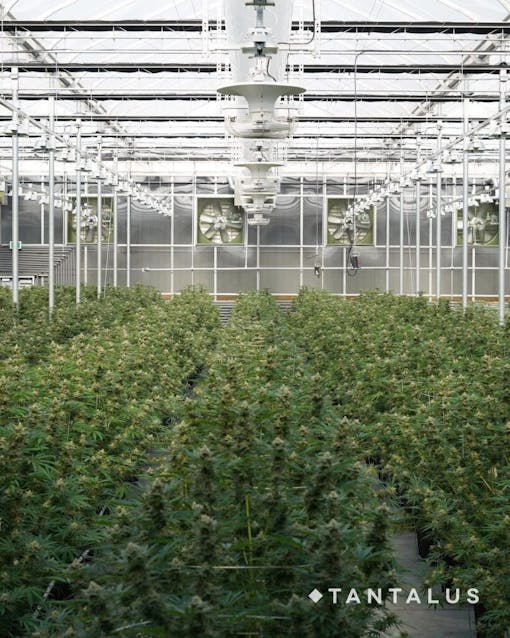The founder of a cannabis company in BC is trying to bring attention to an issue many in the industry say is threatening to put small cannabis companies out of business.
The current federal excise tax on cannabis doesn’t reflect the realities of the market, according to Dan Sutton, CEO of Tantalus Labs, a cannabis cultivator and processor located about an hour outside of Vancouver.
The main issue? The excise tax is set at a flat $1 per gram rate, rather than a percentage of sales. Instead, Sutton says the tax should be based on scale, similar to how they do it in the beer industry.
Canadian craft cannabis is being taxed to death, according to Sutton. That’s why he is leading the charge with the campaign Stand for Craft, where people will be able to learn more about the issue and access literature and ways to contact politicians.
If you believe that small business deserves its place in the future of Canadian cannabis, we need your voice today.
— Dan Sutton (@DSutton1986) September 29, 2021
https://t.co/qpmTgSJAth amplifies this message to 100+ government stakeholders with the power to make change.
Add your voice. Stand with us. Stand for Craft.
The excise tax shouldn’t be a flat rate
The excise tax was established when the federal government legalized cannabis. Cannabis companies selling products into the provincial market, or selling to consumers in the medical stream, are required to pay a flat tax rate.
Overlooking some small nuances, it roughly breaks down to $1 per gram of cannabis sold. Seventy-five percent of those taxes go to the provinces, while twenty-five percent goes to the federal government.
That rate was established partly because the federal government saw the average cost of cannabis at the time of legalization as being around $10 per gram.

“The excise tax regime as it exists today, from the beginning of legalization, has ended up taxing micros, craft, and small to medium businesses upwards of 20-30% of their top-line revenue.”
The problem with this, says Sutton, is that this flat rate means paying about a quarter, or more, of a companies revenue on their wholesale price of cannabis. “Every dollar they make, they have to pay thirty points on the package before they get even a cent.”
Stand for Craft wants tax based on a percentage of sales
Rather than a flat rate, Sutton says he’d like to see a move to a number based on the percentage of sales. Paid on the consumer price rather than the wholesale price.
“If we want an industry that includes small business, if we want an industry that includes firms that are not subsidized by millions in shareholder investments, then we need to revise this excise now,” says Sutton. “We need to attach taxation to wholesale prices: a floating percent.”

When a producer’s profit margin is only $2-3 a gram, that $1 excise tax can eat up 20-30% of the company profits. Sutton predicts that as prices continue to drop, it could amount to 50% or more of revenue.
A sales-based sliding scale would still allow governments to bring in revenue but would not squeeze small cannabis businesses to the point of bankruptcy.
“A change is needed to allow those companies to make enough money to perpetuate themselves. Not to get rich quick, not to blow up in an uncontrolled way, but simply to keep the lights on and expand their businesses organically.”
Craft growers coast-to-coast are joining the cause
Sutton and Tantalus are not the only ones feeling the pain. Kieley Beaudry, the owner of Parkland Flower, a micro cultivator and processor in Alberta that sells seeds, flower and pre-rolls into several provinces, also feels the pressure.
Beaudry, who is also the head of the Alberta Cannabis Micro License Association (ACMLA), says she and the ACMLA are on board to draw more attention to the issue.
https://twitter.com/ParklandFlower/status/1331670247925895169?s=19
“At the ACMLA, we’re taking up the charge with Dan,” says Beaudry. “A lot of it is putting our voices together as a group. I think that is going to be key.”
She says her focus is primarily on politicians at all levels, helping them understand that this is an issue that affects small businesses in their ridings.
“It’s about the local politicians—we need to get them behind us. With municipal elections happening now (in Alberta), this is a good time to speak to the candidates and ask what their thoughts are.”
Times have changed, the excise tax needs to as well
“I don’t think the industry is opposed to paying an excise tax, as long as that tax is reasonable, and is able to rapidly adjust to a constantly fluctuating market,” says Tom Ulanowski, VP of quality assurance and regulatory affairs at Nextleaf Labs Ltd.
Ulanowski explains that the excise tax is currently based on pre-legalization era price assumptions. But three years into legalization, the average price of flower and extracts has fallen under those expectations. Rendering the excise tax out of date and in need of a revamp.

“It made financial sense at $8-9 a gram wholesale,” says Sutton. “But that’s not where [the market] has landed. It’s much lower than that, so we need policies to respond to market conditions.”
The hope for the ‘Stand with Craft’ movement, he says, is to try and push the issue to the forefront—especially with the federal government beginning a mandated three-year review of legalization this October—to try and better shape policy in a positive way.
“It’s not that I don’t want to pay taxes,” says Sutton. “I want to pay the right amount of taxes. Enough that my business can survive, and enough that we can still make an impactful contribution to the Canadian economy, while still being able to operate as a business.”





